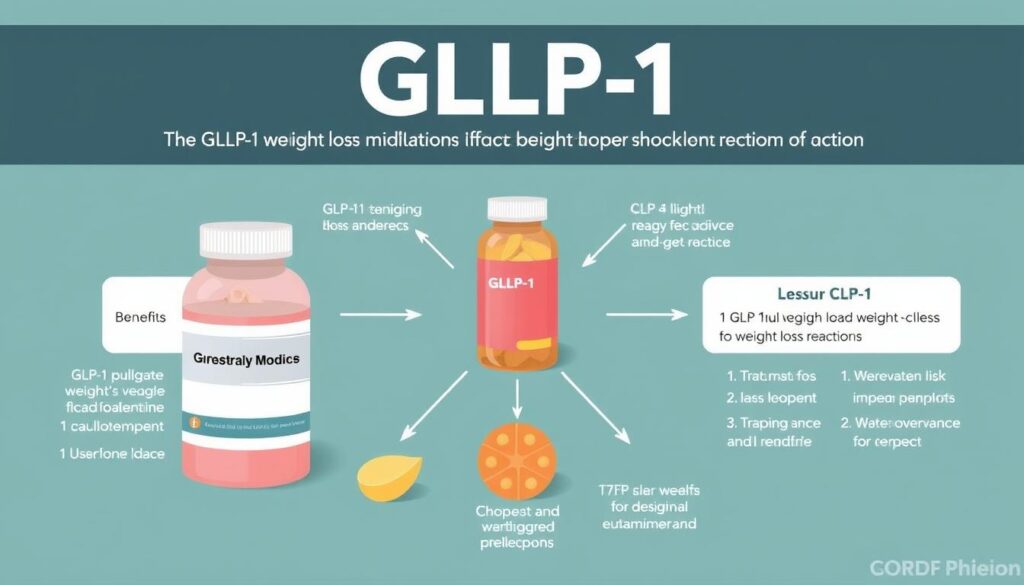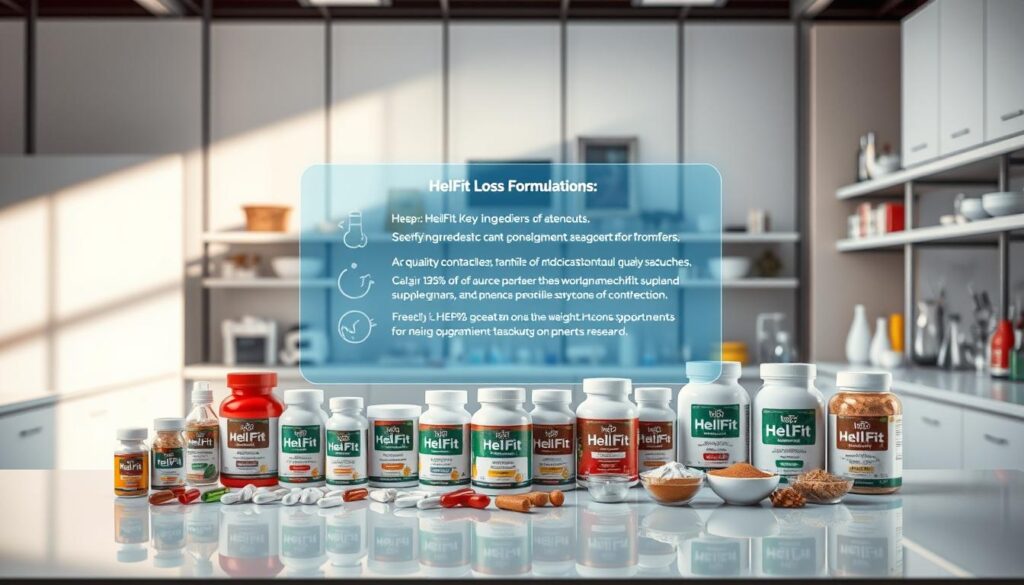The weight loss industry is booming, with the global weight loss supplements market projected to reach USD 36.80 billion in 2025. This significant growth indicates a substantial shift in how people approach their health and wellness goals.
As we dive into the latest developments, we’re seeing a notable transition from fad diets to supplements backed by science. The market is evolving rapidly, with innovative products and emerging trends reshaping traditional weight loss methods.
At CoWrit Technologies Inc., we’re excited to explore the most promising supplements, cutting-edge technologies, and evidence-based approaches defining the industry in 2025. Our comprehensive guide will provide valuable insights into effective weight loss strategies.
Key Takeaways
- The global weight loss supplements market is expected to reach USD 36.80 billion in 2025.
- Innovative supplements and emerging trends are reshaping the weight loss landscape.
- Science-backed solutions are gaining popularity over fad diets.
- Cutting-edge technologies are transforming traditional weight loss methods.
- Our guide will explore the most promising supplements and evidence-based approaches.
The Evolution of Weight Loss Approaches in 2025
In 2025, the focus on weight loss has expanded to encompass a broader perspective on overall health and wellness. We are witnessing a significant shift in how people approach weight management, moving beyond mere dieting to adopting a more holistic view of health.
The conversation around health continued to evolve in 2024, with a growing interest in overall wellness and longevity. As Reynolds notes, “There’s a growing interest in overall health and longevity, whether or not it’s directly associated with weight loss.” This perspective emphasizes that true health is not just about the number on the scale but about building habits that support a longer, more vibrant life.
From Fad Diets to Science-Based Solutions
Over the past decade, we’ve seen a remarkable transformation in weight loss approaches, with 2025 marking a definitive shift away from quick-fix fad diets toward evidence-based, sustainable solutions. Research and scientific studies have increasingly informed weight management strategies, educating consumers about the physiological mechanisms behind effective weight loss.
The wellness industry now recognizes that sustainable weight management requires addressing multiple aspects of health simultaneously, rather than focusing solely on caloric restriction. This approach integrates nutritional science, behavioral psychology, and technological innovations to create personalized weight loss journeys that are both effective and sustainable over the long term.
The Growing Focus on Holistic Health and Longevity
In 2025, there’s a growing emphasis on longevity and quality of life as primary motivators for weight management, rather than purely aesthetic goals. The year 2025 represents a turning point where weight loss is viewed as just one component of a broader health optimization strategy that includes mental wellbeing, sleep quality, stress management, and disease prevention.
| Aspect of Health | Traditional Focus | 2025 Approach |
|---|---|---|
| Nutrition | Caloric restriction | Personalized nutritional science |
| Physical Activity | Exercise for weight loss | Functional fitness for overall health |
| Mental Health | Often overlooked | Integrated mental wellbeing strategies |
As we move forward, it’s clear that the future of weight loss is not just about shedding pounds but about adopting a comprehensive approach to health that enhances overall quality of life.
2025 Weight Loss: Top Supplements & Future Trends
In 2025, the pursuit of weight loss is being revolutionized by cutting-edge supplements and forward-thinking trends. The weight loss supplements market is experiencing unprecedented growth, driven by rising health consciousness among individuals.
Market Overview and Growth Projections
The global weight loss supplements market is projected to reach USD 36.80 billion in 2025, expanding at a compound annual growth rate (CAGR) of 14.2% through 2032. This growth is fueled by increasing awareness about the risks associated with obesity, diabetes, and heart diseases, prompting consumers to adopt healthier lifestyles and consume weight loss products. For a comprehensive overview of the weight loss industry, visit our detailed analysis on the weight loss industry trends.
| Market Segment | 2025 Projection | CAGR (2025-2032) |
|---|---|---|
| Global Weight Loss Supplements Market | USD 36.80 billion | 14.2% |
Key Factors Driving Innovation
Several key trends are driving innovation in the weight loss supplement industry. There’s a notable shift towards supplements with transparent ingredient lists, scientifically-validated formulations, and sustainable production practices. Consumers are increasingly demanding products that support overall metabolic health rather than just weight reduction. Manufacturers are responding by investing heavily in research and development to create evidence-based formulations.

The competitive landscape is evolving rapidly, with established brands expanding their product lines and new entrants bringing innovative approaches to the market. As we move forward, it’s clear that the weight loss industry will continue to be shaped by consumer preferences for natural ingredients, personalized nutrition solutions, and products that work synergistically with lifestyle modifications.
GLP-1 Medications: The Revolutionary Weight Loss Treatment

As we explore the latest advancements in weight loss treatments, GLP-1 medications stand out for their efficacy and potential to transform health outcomes. These medications have emerged as a significant breakthrough in weight management, offering unprecedented results for individuals struggling with obesity and weight-related health conditions.
How GLP-1 Medications Work
GLP-1 medications work by mimicking the body’s natural hormones that regulate hunger and satiety. This mechanism effectively reduces appetite while slowing gastric emptying, creating a prolonged feeling of fullness. By doing so, they help individuals manage their weight more effectively.
Clinical evidence has shown that when combined with lifestyle modifications, GLP-1 medications can lead to significant weight reduction, often between 15-20%. This is substantially more than what’s typically achievable through diet and exercise alone.
Combining Medications with Lifestyle Changes
For optimal results, health experts recommend combining GLP-1 medications with comprehensive lifestyle changes. This includes nutritional adjustments, regular physical activity, and behavioral modifications. By adopting this holistic approach, individuals can maximize the benefits of GLP-1 medications.
Accessibility and Cost Considerations
Despite their effectiveness, GLP-1 medications face challenges related to accessibility and cost. High prices, often exceeding $1,000 monthly without insurance, and ongoing supply shortages of popular brands like Wegovy® and Ozempic®, create barriers for many. The recent FDA approval extension for Wegovy®, including its use for reducing major cardiovascular events in adults with heart disease who are obese or overweight, underscores the importance of these medications.
As the landscape of weight loss treatments continues to evolve, addressing these challenges will be crucial to ensuring that GLP-1 medications are accessible to those who need them.
Appetite Suppressants Leading the Supplement Market

In the quest for effective weight management, appetite suppressants have taken center stage in the supplement market. These supplements have proven to be highly effective in controlling hunger and reducing cravings, making them a sought-after solution for those struggling with weight loss.
Why Appetite Suppressants Dominate
Appetite suppressants continue to dominate the weight loss supplements market in 2025, capturing an estimated 22.1% market share. Their direct approach to addressing hunger control, a challenging aspect of weight management, has contributed to their success. By influencing brain chemicals like serotonin and norepinephrine, these supplements effectively reduce appetite and help users feel fuller for longer.
The market success of appetite suppressants can be attributed to their ability to deliver noticeable results relatively quickly. Users experience a reduction in overall caloric intake without needing extreme willpower, making these supplements an attractive option for those seeking to manage their weight effectively.
Top Appetite Suppressant Ingredients to Look For
Leading ingredients in effective appetite suppressant products include glucomannan, green tea extract, garcinia cambogia, and 5-HTP. Newer, clinically-studied compounds that target specific hunger pathways are also gaining popularity. Consumers are increasingly seeking appetite suppressant options with natural ingredients that offer hunger control benefits without the side effects associated with older, stimulant-based formulations.
The appetite suppressant market has evolved to include various delivery formats beyond traditional pills, such as gummies, powders, and beverages. This diversification caters to different lifestyles and preferences, making it easier for consumers to incorporate these supplements into their daily routines.
Protein-Focused Weight Management Solutions

As we navigate the evolving landscape of weight loss in 2025, protein-focused weight management solutions have emerged as a critical component. The importance of protein in preserving muscle mass, promoting satiety, and stabilizing energy levels has made it a cornerstone for effective weight management.
The Science Behind Protein for Weight Loss
Research confirms that higher protein intake increases thermogenesis, promotes greater satiety, helps maintain lean muscle mass during weight loss, and stabilizes blood sugar levels. This multifaceted approach to weight management is crucial for sustainable weight loss.
For individuals using GLP-1 medications or other rapid weight loss methods, adequate protein consumption is essential to prevent the loss of metabolically active muscle tissue, which can otherwise lead to a slower metabolism.
Innovative Protein Supplement Formulations
The market has evolved to include a variety of protein supplement formulations that combine high-quality protein sources with functional ingredients like fiber, probiotics, and metabolism-supporting compounds. These comprehensive solutions support overall weight management and weight maintenance.
Consuming 25-30 grams of protein per meal can help optimize muscle protein synthesis and weight management benefits, making strategic protein intake an important component of effective weight loss programs.
Natural and Organic Weight Loss Products

The weight loss industry is witnessing a significant shift towards natural and organic products, driven by consumer demand for transparency and safety. As consumers become more health-conscious, they are seeking weight management solutions that avoid harsh chemicals and synthetic ingredients.
Consumer Shift Toward Clean Ingredients
Today’s consumers are scrutinizing ingredient lists more carefully than ever, seeking transparent formulations with recognizable, plant-based ingredients. The natural and organic weight loss products segment is experiencing remarkable growth in 2025, driven by increasing consumer awareness about ingredient quality and safety concerns regarding synthetic compounds.
Popular natural ingredients gaining traction include green tea extract, turmeric, garcinia cambogia, and green coffee bean extract. These ingredients are perceived as safer and more natural compared to conventional options involving stimulants.
Plant-Based and Herbal Formulations
Plant-based and herbal formulations are appealing not just to vegetarians and vegans but to a broader audience concerned about sustainability, ethical sourcing, and long-term health implications. Manufacturers are responding by developing innovative extraction methods that preserve the potency of natural compounds while ensuring consistency and efficacy in their weight loss products.
The shift toward clean ingredients extends beyond avoiding artificial additives; consumers are now seeking bioactive compounds with research-backed benefits for metabolic health, inflammation reduction, and hormonal balance. As a result, products featuring ingredients like acai berry and adaptogenic herbs are gaining popularity.
Wearable Technology and Fitness Tracking Innovations
![]()
As we step into 2025, wearable technology and fitness tracking innovations are revolutionizing health and wellness. The latest advancements in wearable devices are providing users with comprehensive insights into their health and fitness levels, far beyond the basic step counting of earlier models.
Advanced Metrics Beyond Step Counting
Modern fitness trackers and smartwatches now monitor a wide range of health metrics, including heart rate variability, sleep quality, stress levels, blood oxygen saturation, and even preliminary blood glucose patterns. This wealth of data creates a holistic picture of an individual’s metabolic health, enabling more informed decisions about their lifestyle and activity levels.
The integration of these advanced metrics allows for personalized recommendations that adapt to individual physiological responses. By understanding which activities and dietary choices most effectively support their weight loss goals, users can make targeted adjustments to their regimen.
Integration with Weight Loss Programs
The seamless integration between wearable devices and comprehensive weight loss programs is another significant advancement. This integration creates accountability systems that have been shown to significantly improve adherence and long-term success rates. By tracking progress and receiving insights based on their heart rate and other vital signs, users can make immediate adjustments to their activity levels, nutrition, and recovery practices.
Leading fitness technology companies have developed sophisticated algorithms that can identify optimal workout timing based on individual circadian rhythms and recovery status. This maximizes the effectiveness of physical activity for weight management, making every workout count.
By leveraging the power of wearable technology and advanced tracking capabilities, individuals can take a more dynamic and responsive approach to their weight loss journey. As we continue to innovate in this space, the potential for improved health outcomes is vast.
AI-Powered Weight Management Tools

In 2025, AI-powered weight management tools are setting a new standard for achieving weight loss success. These tools leverage sophisticated algorithms to analyze multiple data points, providing personalized nutrition and exercise recommendations tailored to individual metabolic profiles.
Personalized Nutrition and Exercise Recommendations
Artificial intelligence has transformed weight management by creating truly personalized plans. AI-powered tools use machine learning to identify patterns in user data, revealing which specific foods, meal timings, and exercise types yield the best weight management results for each person.
The latest nutrition AI can analyze photos of meals to instantly provide accurate nutritional information, portion guidance, and suggestions for optimizing the nutritional profile of meals without manual logging.
Real-Time Feedback and Accountability Features
Real-time feedback features alert users to potential decision points throughout the day, offering timely interventions when historical data suggests they might be vulnerable to choices that don’t align with their weight loss goals.
Advanced accountability features use behavioral psychology principles to maintain motivation, with AI systems learning which types of prompts, challenges, and rewards most effectively drive consistent action for each individual user.
By integrating AI with wearable technology, a comprehensive weight management ecosystem is created, continuously adapting to changing physiological responses, preferences, and lifestyle factors to maintain progress toward fitness goals.
Functional Fitness: The Shift from HIIT to Everyday Movement
As we move into 2025, the fitness landscape is witnessing a significant shift towards functional fitness, moving away from high-intensity interval training (HIIT). This change reflects a broader understanding that fitness is not just about intense workouts but about enhancing our overall ability to perform daily activities with ease and efficiency.
According to the ACSM, fitness professionals are noticing this shift towards an exercise approach that focuses on improving movements and activities essential for everyday life. Known as functional fitness, this form of exercise aims to improve strength, flexibility, balance, and endurance to enhance overall physical performance and reduce the risk of injury.
Benefits of Functional Training for Weight Loss
Functional training offers numerous benefits for weight loss. By engaging multiple muscle groups simultaneously, it increases metabolic rate and burns calories efficiently while building practical strength. This approach is particularly effective because it mirrors the movements we make in our daily lives, such as lifting objects, bending, twisting, and climbing stairs.
Research supports the efficacy of functional fitness for weight loss. A systematic review found that long-term functional training may significantly reduce body fat percentage, particularly in older adults, while improving mobility and quality of life. This makes it an attractive option for those seeking a sustainable fitness regimen.
Incorporating Functional Fitness into Daily Life
One of the key advantages of functional fitness is its scalability and adaptability to daily life. Exercises like squats, shoulder presses, band pull-aparts, and deadlifts can be modified to accommodate any fitness level, making it inclusive for both beginners and advanced enthusiasts. Moreover, functional fitness can be seamlessly incorporated into daily routines, turning household chores or walking to work into opportunities for calorie-burning movement and increased energy.
By adopting functional fitness, we can make activity a natural part of our daily lives, enhancing our overall health and wellbeing. As Teddy Savage, CPT, notes, “Functional fitness is more than just a fad; it’s the connection of the dots from exercises to daily movement patterns we do outside of the gym.”

Supplement Formulations and Delivery Methods
As we explore the world of weight loss supplements in 2025, the importance of formulation and delivery methods becomes increasingly evident. The way supplements are formulated and delivered plays a crucial role in their effectiveness and user compliance.
The global weight loss supplements market is dominated by tablets and pills, which are projected to hold a 36.3% market share in 2025. This dominance is attributed to their ease of use, precise dosage, and long shelf life.
Tablets and Pills: The Leading Format
Tablets and pills remain the preferred format due to their convenience and straightforward integration into daily routines. They offer precise dosage, ensuring consistency and accuracy in weight loss regimens. Their stability and long shelf life make them a cost-effective option for both consumers and manufacturers.
Emerging Alternatives: Gummies, Liquids, and Powders
While traditional formats like tablets and pills continue to dominate, innovative delivery methods are gaining traction. Gummies have emerged as a palatable alternative for those who struggle with pill fatigue. Liquid formulations offer advantages in absorption rates, particularly for ingredients that are poorly absorbed in solid form. Powdered supplements provide versatility in dosing and can be easily incorporated into various foods and beverages.

Choosing the Right Formulation for Your Needs
When selecting a weight loss supplement, it’s essential to consider factors beyond personal preference. These include the absorption rates of specific ingredients, potential interactions with medications, lifestyle compatibility, and whether time-released or immediate-release effects are more appropriate for your weight loss goals.
| Formulation | Advantages | Considerations |
|---|---|---|
| Tablets/Pills | Precise dosage, long shelf life, convenient | Potential for pill fatigue |
| Gummies | Palatable, enjoyable | Challenges in maintaining potency and taste |
| Liquids | Enhanced absorption rates | Shorter shelf life, potential for variable absorption |
| Powders | Versatile dosing, easy to incorporate into foods/beverages | May require preparation, potential for inconsistent dosing |
Regional Market Trends and Consumer Preferences
As we explore the global weight loss market, regional trends and consumer preferences reveal fascinating insights. The weight loss industry is not homogeneous; it is shaped by local cultures, dietary habits, and consumer behaviors.

North American Market Insights
The North American market dominates the global weight loss supplements market with an estimated 39.3% share in 2025. This dominance can be attributed to increasing obesity rates, a growing health and wellness trend, and robust product promotion by regional players. The region’s strong distribution network and extensive pharmacy chains ensure the wide availability of weight loss products. Consumers in North America prefer convenience-oriented products and high-performance formulations that complement popular diet trends.
Asia Pacific’s Rapid Growth
The Asia Pacific region is the fastest-growing market, with an estimated 25.3% share in 2025. Countries like China, India, and Japan are leading this growth, driven by rising health awareness, increasing disposable incomes, and changing lifestyles. Traditional herbal ingredients are being reformulated into modern supplement formats, creating unique products that blend ancient wisdom with contemporary science. This blend of traditional and modern approaches is a hallmark of the region’s weight management products.
European Approaches to Weight Management
European consumers tend to favor supplements with strong scientific backing, clean ingredient profiles, and sustainable production practices.
“The European market is characterized by a strong emphasis on quality and sustainability, reflecting the region’s stringent regulatory environment and environmental consciousness.”
Regional brands are tailoring their formulations to local preferences, dietary patterns, and body composition goals, recognizing that effective weight management solutions must account for cultural and genetic differences.
In conclusion, understanding these regional trends is crucial for brands looking to succeed in the global weight loss market. By tailoring products to local preferences and cultural nuances, brands can better meet the needs of their target consumers and achieve greater success in this competitive market.
Avoiding Common Weight Loss Pitfalls in 2025
As we navigate the complex world of weight loss in 2025, it’s crucial to steer clear of common pitfalls that can derail our progress. The weight loss landscape is continually evolving, with new trends and innovations emerging regularly.
According to Reynolds, “Every year, people tend to commit to changes that are extreme or costly—think eliminating food groups, fad diets, or trendy supplements. For most, these changes aren’t enjoyable or sustainable, creating a cycle of yo-yo dieting.” This highlights the importance of adopting sustainable habits built around balance, mindfulness, and consistency.
Balancing Innovation with Proven Strategies
As weight loss innovations continue to emerge, many consumers fall into the trap of chasing the newest trend while abandoning proven strategies. The key to long-term success lies in balancing innovation with evidence-based practices—using new supplements and technologies to enhance rather than replace the core principles of healthy weight management.
Successful weight management still requires the fundamentals: balanced nutrition, regular physical activity, adequate sleep, and stress management. By integrating technological advances and supplement innovations within a framework of realistic lifestyle changes, we can achieve our weight loss goals more effectively.
“Noom focuses on sustainability from day one—no quick fixes or radical changes that can’t be maintained,” says Reynolds. This approach underscores the importance of gradual, consistent progress rather than dramatic transformations.
Sustainable Approaches vs. Quick Fixes
The most common pitfall remains the pursuit of quick fixes and extreme approaches that promise rapid results but lead to the familiar cycle of weight loss followed by regain. Sustainable approaches, on the other hand, focus on habits that can be maintained for a lifetime, ultimately yielding better health outcomes.
In 2025, the most successful weight loss journeys will integrate new technologies and supplements within a framework of realistic lifestyle changes that align with individual preferences, values, and life circumstances. This sustainable approach is more likely to lead to long-term weight loss and overall health improvements.
| Sustainable Weight Loss Strategies | Quick Fixes |
|---|---|
| Balanced nutrition | Fad diets |
| Regular physical activity | Extreme exercise routines |
| Adequate sleep and stress management | Crash diets and excessive supplements |

By understanding the pitfalls of common weight loss approaches and adopting a balanced, sustainable strategy, we can achieve our weight loss goals and maintain a healthy lifestyle over time.
Conclusion
As we step into 2025, the weight loss landscape is transforming with innovative supplements and personalized approaches. The most effective weight loss strategies now combine evidence-based lifestyle practices with cutting-edge supplements tailored to individual needs.
The weight loss supplement market continues to grow at an impressive rate, driven by trends such as appetite suppressants, protein-focused formulations, and natural products. These trends are reshaping how people approach their health and wellness goals.
Research and scientific study have significantly advanced our understanding of effective weight management, moving beyond simplistic calorie counting to more nuanced approaches that consider hormonal balance, metabolic health, and body composition. For women, men, and adults of all ages, personalized approaches are replacing one-size-fits-all solutions.
The integration of technology, from AI-powered nutrition tools to advanced wearables, has transformed how people track progress and gain insights into their bodies. While GLP-1 medications have revolutionized medical approaches to weight management, they work best when combined with quality nutrition and regular physical activity.
As we look toward the future, the most promising trend is the shift toward holistic approaches that prioritize overall wellness, energy levels, and quality of life alongside weight management goals. For professional guidance on implementing these trends and insights into marketing strategies, CoWrit Technologies Inc offers comprehensive services including content writing, digital marketing, and ad campaigns—reach out via WhatsApp at +44-7822010953 to learn more.


